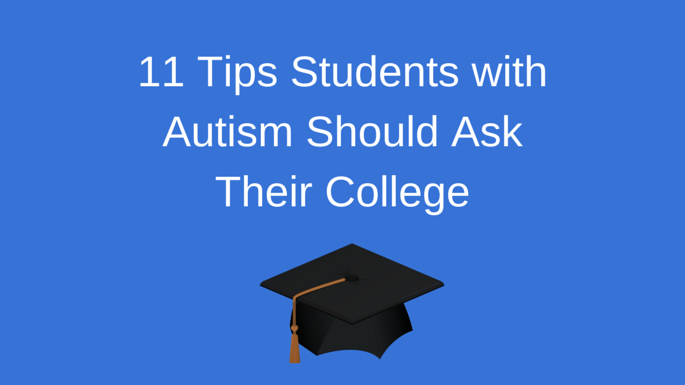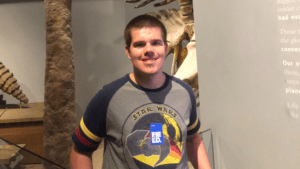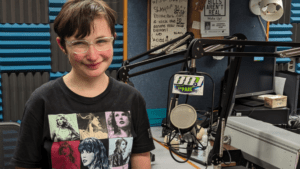Below are 11 questions students on the autism spectrum can ask their college/university.
1. As a college student affected by autism, what is one of the main things I need to know?
A big difference between college and high school is that in high school you generally have a structured plan for your accommodations called an “Individualized Education Program.” However, in college that no longer exists, meaning you must advocate to your Disability Support Group on campus to receive your own accommodations
2. What are some accommodations I can receive in my classes?
Individuals on the spectrum receive accommodations only if they register with their Disability Support Group. They will then receive accommodations based on their needs. This can include extended time on tests, tape recorders for classes, individual note takers, etc.
3. Do I have to pay for accommodations?
Under The Americans with Disabilities Act of 1990, colleges are required to provide all learning disabled individuals with “reasonable accommodations.” However, you should check the guidelines in regards to what is and what is not available on your campus.
4. Will faculty or fellow students be informed that I am on the autism spectrum?
Faculty members are not allowed to disclose any information about a student to others without consent from the student. However, students must register as a “disabled student” to receive accommodations – meaning your disability support group would be aware you have a disability. It is then up to you to inform your instructors.
5. Is on-campus living for me?
Accommodations can also factor into your living arrangements on campus which will give you opportunities for a safer environment, like a single room. Ask if your resident assistant will be made aware of your living situation, since he/she can be of help in an emergency.
6. Will tutoring be available for my courses?
Most colleges provide tutoring for all students, but it is important to learn about those services early on to see if it is available and if you need additional support.
7. Are there any restrictions on how many courses I can take?
Some disability support groups require you take less courses in your first few semesters of college to make for an easier transition.
8. Is there a club on campus that raises awareness about autism and provides social opportunities for students affected by autism?
Autism Speaks college program, Autism Speaks U, works with students across the county to start chapters that raise awareness and funds. Some also establish mentoring programs for students and youth on the autism spectrum. To see if a chapter exists on your campus, visit www.AutismSpeaks.org/U.
9. Will my professors have any previous training in educating individuals affected by autism?
There is no requirement at most college for professors to have education in teaching individuals with learning disabilities. You should be prepared to advocate for yourself when a situation deems itself appropriate to do so.
10. Will I be treated differently by fellow students because I have autism?
Like in any other situation where you are around people, there is the possibility of a lack of awareness on their part in dealing with people with learning disabilities. Therefore, spreading awareness is crucial for you and others affected by autism.
11. Is there anything on campus that focuses on post-college plans for individuals affected by autism?
Many colleges have a career program/center that focuses on helping you network with outside companies. You can also look under the Americans with Disabilities Act for information about job accommodations and workshops.
If you are interested in raising awareness on your college campus visit www.AutismSpeaks.org/U.














